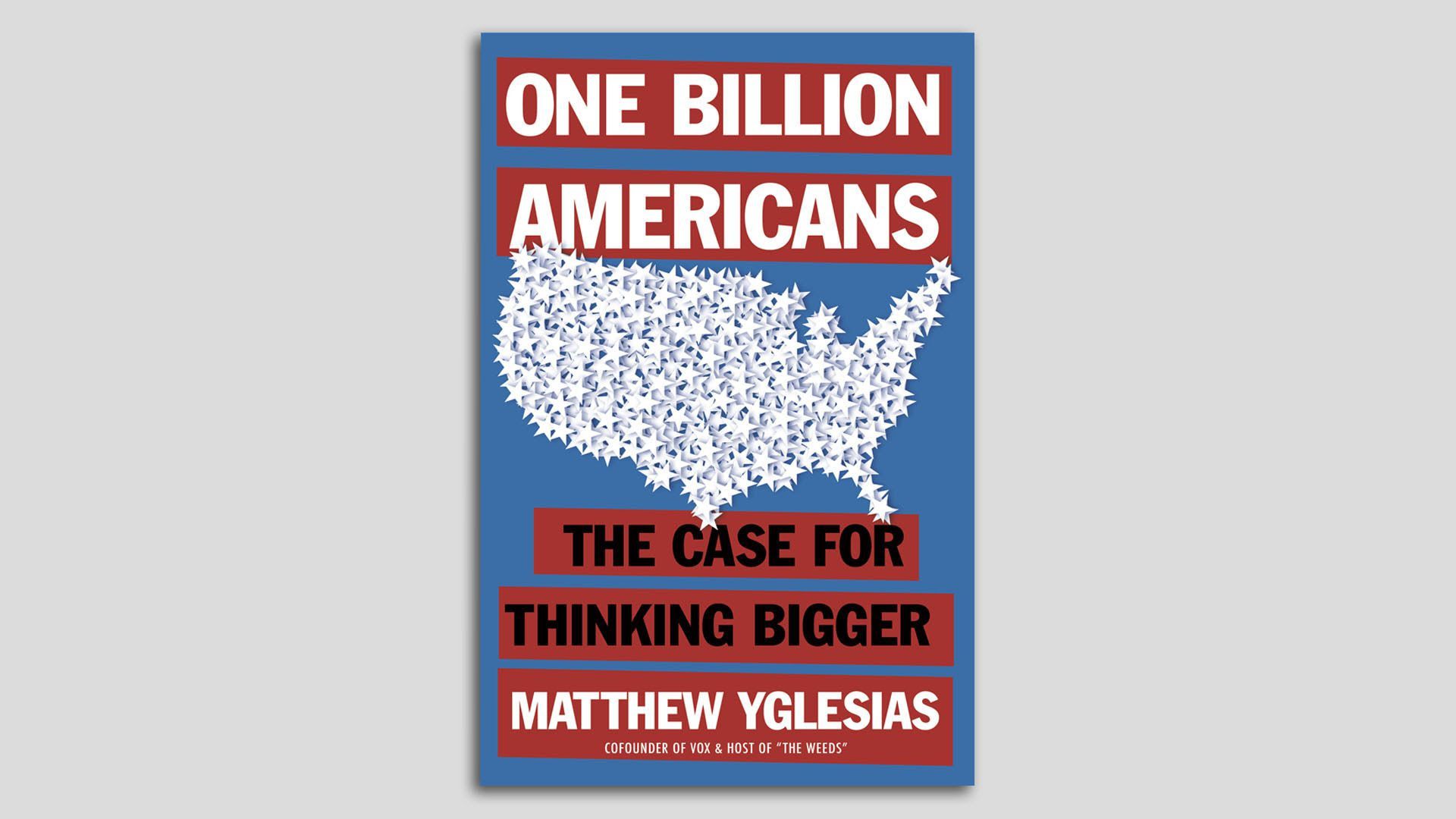The argument for a billion Americans
Add Axios as your preferred source to
see more of our stories on Google.

Photo: Portfolio
A new book argues the U.S. should aim for massive population growth through aggressive housing policy, enhanced support for families and a major increase in legal immigration.
Why it matters: Because size does matter — at least geopolitically. If the U.S. wants to counterbalance a rising China, it needs to compete on sheer numbers.
What's happening: In his new book "One Billion Americans: The Case for Thinking Bigger," Vox co-founder Matthew Yglesias identifies one of the few areas left where there is broad bipartisan agreement: China is challenging the U.S.'s place in the world and "America should aspire to be the greatest nation on Earth."
By the numbers: There are roughly 93 people in the U.S. per square mile, far fewer than countries we might not think of as densely populated, like Belgium (976 people per square mile).
- Even if the U.S. were to add people only to the lower 48 states while tripling overall population, the country would still be less than half as dense as Germany.
To reach that goal, Yglesias writes, "it would just require more immigrants and more programs to support people who want to have additional children."
- The U.S. still has the advantage of being the destination of choice for tens of millions of people around the world — far more than are currently allowed in.
- Vastly increasing immigration to the U.S. would require bucking recent trends. In 2018 the net increase of immigrants in the U.S. population dropped to about 200,000 people, a decline of more than 70% from the year before.
- Yet according to a recent Gallup survey, support for increased immigration is now at the highest it has been since the polling firm first began tracking the question in 1965.
Family size is another tricky political issue, but Yglesias notes that while he supports reproductive rights, the gap between the number of children that women in America say they want to have (2.7) and the number of children they will likely have (1.8) is the highest it has been in 40 years.
- There are many reasons for that gap, but a foundational one is the sheer cost of raising children in the U.S., much of which is shunted onto working parents.
- Yglesias advocates for vastly increased public support for day care for young children, as well as after-school and summer programs for older kids, and universal financial benefits for parents.
Lastly, that 1 billion would need a place to live — perhaps the biggest challenge at a moment when housing costs are increasingly burdening Americans.
- The solution, Yglesias writes, is simple — at least in concept: "letting builders make whatever kind of housing their customers want to buy."
But, but, but... The negative consequences of vastly increased population growth are many: increased traffic, potentially higher rents and more pollution, including carbon emissions.
The biggest obstacle is a small-c conservative political culture that Yglesias says "does nothing because we can't agree to do anything" — even on policies that a majority of Americans support, like building more housing.
- But if we continue on our default course, Yglesias says we risk ending up with "a shrinking, aging, inward-looking America."
The bottom line: I don't expect to see a billion Americans any time soon, in part because global population trends are pointing toward an ultimately shrinking world. But proactively deciding to support more Americans would better prepare the U.S. for the future.
Go deeper: The aging, childless future
